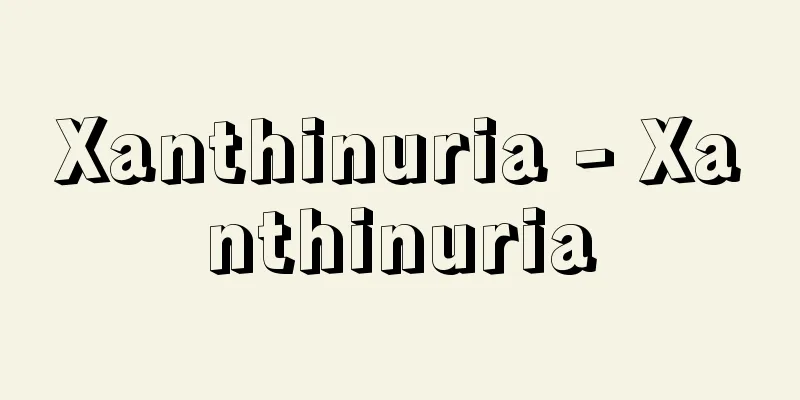Virtue - Toku

|
An important concept in Chinese ethical and political thought. The character "de" originally had no radical, and its side part is a combination of the characters for "direct" and "heart." The pronunciation of "toku" is similar to "obtain" (Shakumyo). In other words, it means a straight-forward heart, something one has acquired . Ethically, it refers to correct behavior. "Therefore, the king should quickly exercise virtue" (Shou-Kou, Book of Documents). Politically, it means benefits and rewards for the people, as opposed to punishment. This comes from the nuance of gain over loss. "Virtue, punishment, and government ceremonies" (Zuo Zhuan, 12th year of Duke Xuan). Confucius also advocated the principle of governing with virtue, in which rulers would influence the people by correcting themselves. "When one governs with virtue, it is like the North Star descending to its place and all the stars moving in unison" (The Analects, Chapter on Government). Virtue also refers to innate abilities and attributes that do not include ethical values. "That which is born from the acquisition of things is called virtue" (Zhuangzi, Chapter on Heaven and Earth). This is a common way of thinking in the Taoist school. For example, a bird's flight high to avoid an arrow and a rat's burrowing underground to hide are both virtues (Zhuangzi, King Ying). The Xici section of the Book of Changes says, "The great virtue of heaven and earth is called birth." This means that it is the work of heaven and earth to give birth to all things, and is used in a similar way to the meanings of abilities and attributes mentioned above. Furthermore, the Yin-Yang and Five Elements School counts the five elements of all things as wood, metal, fire, water, and earth, and each dynasty takes its turn bearing the attributes of each element (wood virtue, metal virtue, fire virtue, water virtue, and earth virtue). For example, the Yin dynasty of metal virtue overcomes the Xia dynasty of wood virtue, the Zhou dynasty of fire virtue overcomes the Yin dynasty of metal virtue, and the Qin dynasty of water virtue overcomes the Zhou dynasty of fire virtue. [Honda Satoshi] Western EuropeIn Western thought, the equivalent of this word is the Greek word αρετη, the Latin word virtus (from which the French word vertu and the English word virtue are derived), and the German word Tugend, and all of these words have their own unique fundamental meanings. First of all, in the ancient times of Homer and others, arete meant the excellent function of each thing, whatever it may be. For example, the arete of a knife means that it cuts well, and the arete of a horse means that it runs fast. At this stage, the arete of a human being could mean any excellent ability possessed by a human being, but the development of Greek ethical thought was in the process of this being ethicalized and internalized. On the other hand, the Latin word virtus is a word formed from the word man (vir), and originally meant "masculinity." In other words, its original meaning was courage on the battlefield, which is the place of a man, and from there it developed into inner strength and ethical virtue. There is a similar situation with the German word Tugend. In other words, the word comes from taugen, meaning "useful," and originally meant "ability, excellence" possessed by any thing or person. Thus, originally virtue meant the excellence of natural ability, but in Western thought, it was Aristotle, after the thoughts of Socrates and Plato, who clearly systematized it as ethical virtue. Aristotle first generally defined virtue as hexis εξις. Hexis is a certain ability to act that humans acquire after birth. In other words, humans are born with an innate virtue (or a view of goodness), but this is emotional and has no firm foundation. When this disposition is formed into an unshakable ability to act through repeated conscious actions based on rational choice, virtue in the true sense of the word is born. Moreover, virtue in the ethical sense is established when the pathos elements such as desire, impulse, and passion, which are generally expressed by pleasure and pain, are determined by rational principles, and this determining principle is "correct reason" and the determined state is none other than the so-called mesothes μεσοτης (the golden mean). Another pillar of the theory of virtue in Western thought is found in Christian doctrine. That is, the love of one's neighbor preached by Jesus is its foundation, and theologically, the faith, hope, and love that Paul described in "1 Corinthians" are the original virtues spoken of in Christianity. All subsequent theories of virtue in Western thought were nothing but developments from these two roots. [Yasuo Iwata] "Chinese Culture Series 2: An Introduction to Thought," edited by Akatsuka Tadashi, Kanaya Osamu, Fukunaga Mitsuji, and Yamai Wataru (1968, Taishukan Shoten)" ▽ "For Students of Chinese Thought," edited by Honda Ji (1975, Sekaishisosha)" ▽ "An Age Without Virtue, by Alasdair MacIntyre, translated by Shinozaki Sakae (1993, Misuzu Shobo)" ▽ "The Contemporary Significance of Virtue Ethics," edited by the Japanese Association for Ethics (1994, Keio Tsushin)" ▽ "History of Western Political Thought 1," edited by Fujiwara Yasunobu and Iijima Shozo (1995, Shinhyoron)" [References] | | | |Source: Shogakukan Encyclopedia Nipponica About Encyclopedia Nipponica Information | Legend |
|
中国の倫理思想と政治思想における重要概念。徳という字は、もと扁(へん)がなく、旁(つくり)は直と心との合成である。また「トク」という発音は得(とく)と通ずるという(『釈名(しゃくみょう)』)。つまり真(ま)っ直(すぐ)な心、わが身に獲得したもの、の意味がある。倫理学的には、正しい行為をさす。「肆(ゆえ)に惟(こ)れ王はそれ疾(すみや)かに徳を慎(つつし)め」(『書経』召誥(しょうこう))。政治的には、刑罰に対するものとして、民への恩恵、褒賞を意味する。これは損得の得のニュアンスからである。「徳刑政事典礼」(『左伝(さでん)』宣公12年)。さらに孔子は、為政者が自身を正すことで民を感化するという徳治主義を唱えた。「政(まつりごと)を為(な)すに徳を以(もっ)てすれば、譬(たと)えば北辰(ほくしん)その所におりて衆星これに共(むか)うが如(ごと)し」(『論語』為政篇(へん))。また、倫理的な価値観を含まない、本有的能力とか属性をも徳という。「物の得て以て生ずる、これを徳という」(『荘子(そうじ)』天地篇)。これは道家(どうか)の系列に多い考え方である。たとえば鳥が高く飛んで矢を避け、鼠(ねずみ)が地下に潜って身を隠すのも徳である(『荘子』応帝王)。『易(えき)』繋辞(けいじ)伝に「天地の大徳を生と曰(い)う」とある。万物を生々するのが天地のはたらきという意味で、前述の能力・属性の意味と似た用法である。さらに陰陽五行家は、万物の五元素を木、金、火、水、土と数え、各王朝はそれぞれの元素の属性(木徳、金徳、火徳、水徳、土徳)を宿命的に背負って交代する。たとえば金徳の殷(いん)は木徳の夏(か)に剋(か)ち、火徳の周は金徳の殷に剋ち、水徳の秦(しん)は火徳の周に剋つ、という。 [本田 濟] 西欧西欧思想でこのことばにあたるものは、ギリシア語のアレテーαρετη、ラテン語のビルトゥスvirtus(フランス語のvertu、英語のvirtueはここから派生)、ドイツ語のトゥーゲントTugendなどであるが、これらのことばにはみな特有の根源的な意味がある。まず、アレテーは、ホメロスなどの古い時代には、なんであれ、おのおのの事物のもつ優秀な機能を意味していた。たとえば、ナイフのアレテーはよく切れることであり、馬のアレテーは速く走ることである。この段階では、人間のアレテーは、人間の所有するあらゆる意味での優秀な能力を意味しえたが、これが倫理化され内面化されてゆくところにギリシア倫理思想の発展があった。他方、ラテン語のビルトゥスは男(vir)ということばから形成された語であり、本来「男らしさ」を意味する。すなわち、男の場所である戦場における勇気がそれの本来の意味であり、そこから内面的な強さ、倫理的徳という展開をたどることになる。ドイツ語のトゥーゲントにも似たような事情がある。すなわち、この語は「役にたつ」taugenという語に由来し、本来、なににせよ事物や人物の所有する「有能さ、卓越した点」を意味していたのである。 このように、徳は原初においては自然的能力の優秀性を意味していたが、西欧思想において、これが倫理徳として明確に体系化されたのは、ソクラテス、プラトンの思索を経たのち、アリストテレスにおいてである。アリストテレスは徳をヘクシスεξιςとしてまず一般的に規定する。ヘクシスとは、人間が後天的に獲得した一定の行為能力のことである。すなわち、人間には生まれつき身に備わった本性的な徳(ないしは善へのまなざし)があるが、これは情緒的なもので確固とした基礎をもたない。この素質を理性的選択に基づく自覚的行為の反復によって不動の行為能力へと形成したとき、本来の意味での徳が生まれる。そして、倫理的な意味での徳とは、欲望、衝動、激情など、総じて快苦によって示されるパトス的な要素を理性的原理によって規定するところに成立するが、この規定原理が「正しい理(ことわり)」であり、規定された状態がいわゆるメソテースμεσοτης(中庸)にほかならない。西欧思想における徳論のもう一つの柱はキリスト教の教説にある。すなわち、イエスの説いた隣人愛がその基礎であるが、神学上では、パウロが「コリント前書」で述べた信仰、希望、愛がキリスト教の語る本来の意味での徳である。以後の西欧思想における徳論はすべてこの二つの根源からの展開にほかならなかった。 [岩田靖夫] 『赤塚忠・金谷治・福永光司・山井湧編『中国文化叢書2 思想概論』(1968・大修館書店)』▽『本田濟編『中国思想を学ぶ人のために』(1975・世界思想社)』▽『アラスデア・マッキンタイア著、篠崎栄訳『美徳なき時代』(1993・みすず書房)』▽『日本倫理学会編『徳倫理学の現代的意義』(1994・慶応通信)』▽『藤原保信・飯島昇蔵編『西洋政治思想史1』(1995・新評論)』 [参照項目] | | | |出典 小学館 日本大百科全書(ニッポニカ)日本大百科全書(ニッポニカ)について 情報 | 凡例 |
>>: Centipeda minima (L.) A.Br.et Aschers.
Recommend
Asahi [town] - Asahi
A town in Nishimurayama County in central Yamagata...
Akizaki Yatsushiroran - Akizaki Yatsushiroran
… G . gracilis Blume is a rare plant with a pedic...
Izakuso - Izakunosho
A manor from the Kamakura and Nanboku-cho periods...
Otsugu no Kagura - Otsugu no Kagura
A type of Kagura passed down by mountain priests i...
Mahafali
…The Sihanaka people live around Lake Alaotra, an...
Aclarubicin
C 42 H 53 NO 15 (811.87). Also known as aclacinom...
Jakob Johann von Uexküll
German theoretical biologist. He studied zoology ...
Eksat Jatika Pakshaya (English spelling)
… [Politics] Since independence, the government h...
Toyohama [town] - Toyohama
This former town in Toyota County consists of sout...
Edo period art
In art history, the Edo period generally refers to...
Sensory epithelium
The epithelium of animals that is made up of a lar...
Edo
An impure world full of impurity. In Buddhism, it...
Pachymeningitis
…This is what is commonly known as meningitis, al...
Hospital
In Japan, the Medical Care Act defines a hospital...
Gramawārī (English spelling) Gramawari
…the system of taxation implemented by the Britis...
![Inakadate [village] - Inakadate](/upload/images/67caef9372dba.webp)








